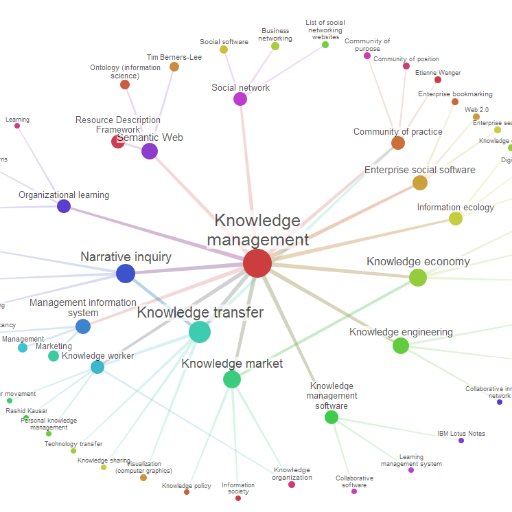#imfblog search results
RT @IMFNews Our new survey of global attitudes about fighting climate change shows that effective communication and building awareness of the best policy options matter most. Learn more here on #IMFBlog: bit.ly/3x9303d

RT @IMFNews In the United Kingdom, living costs for the poorest 20% of households are set to rise by about twice as much as those for the wealthiest because of higher energy bills. Read #IMFBlog. bit.ly/3SoC09m

RT @IMFNews The collapse of crypto exchange FTX is prompting calls for greater regulation of the crypto industry. Here’s what countries in sub-Saharan Africa are doing. bit.ly/3UZPQQ6 #IMFBlog

RT @IMFNews Pacific island countries have untapped tax potential, and raising more revenue could help pay for vital climate and social-development spending. See our latest blog for more. bit.ly/3yUmjOU #IMFBlog
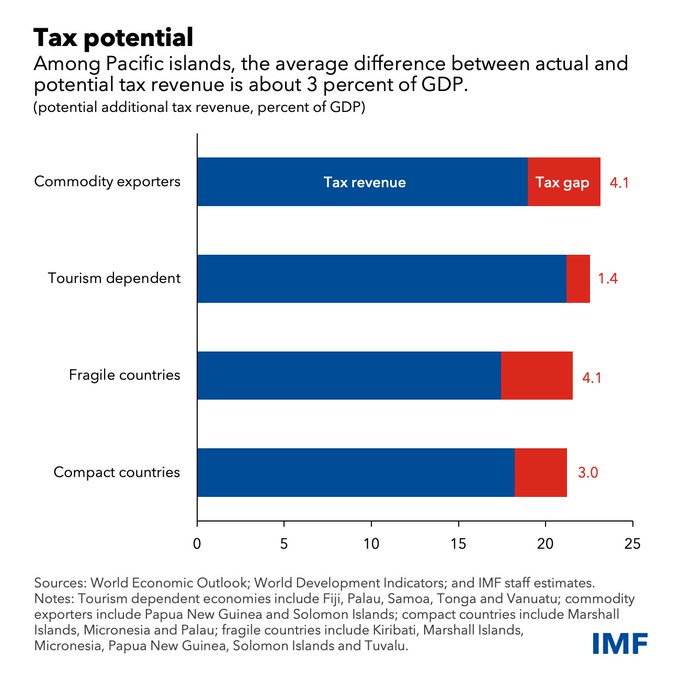
RT @IMFNews A picture is worth a thousand words. See #IMFBlog for our recent Chart of the Week posts that visualize what’s happening in the global economy. bit.ly/3wDjpgw
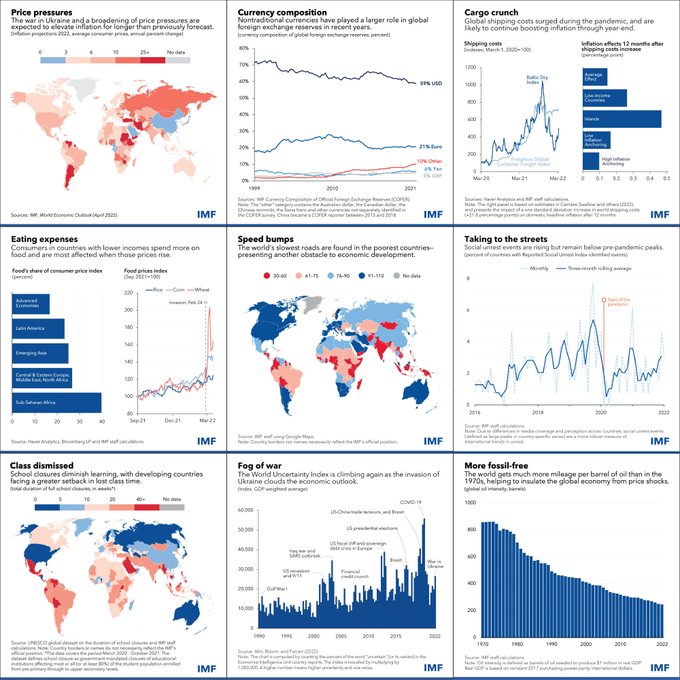
RT @IMFNews In Asia, where digital divides constrain productivity growth, narrowing those gaps and promoting technological adoption can help boost productivity growth and economic output. bit.ly/3it0ml8 #IMFblog

RT @IMFNews The longer we wait, the worse the trade-off. That’s the conclusion of our latest research on the economic costs of delaying the world’s transition to low carbon emissions. #IMFBlog bit.ly/3CyJh07
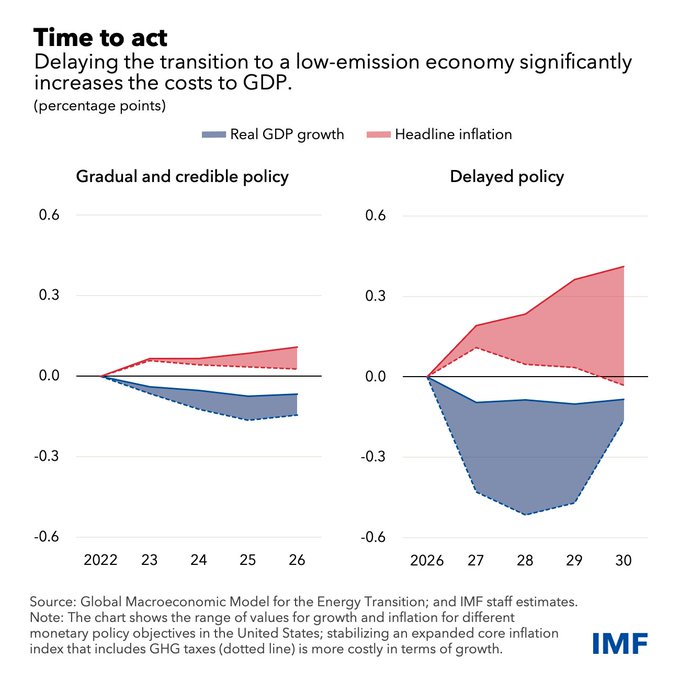
RT @IMFNews In the United Kingdom, living costs for the poorest 20% of households are set to rise by about twice as much as those for the wealthiest because of higher energy bills. Read #IMFBlog. bit.ly/3SoC09m
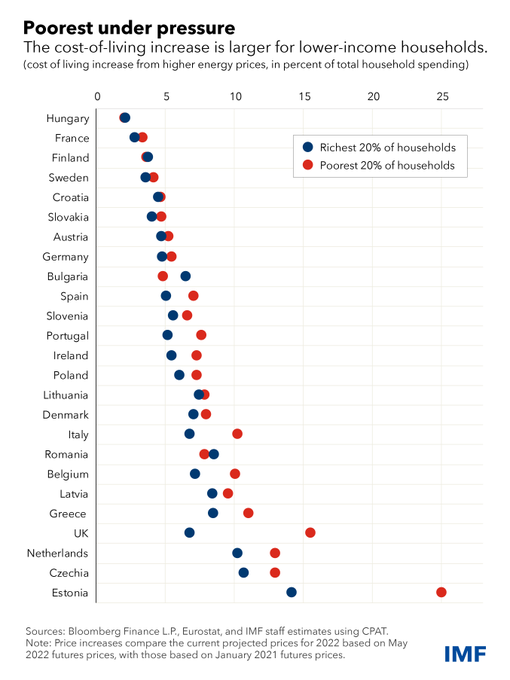
RT @IMFNews In the United Kingdom, living costs for the poorest 20% of households are set to rise by about twice as much as those for the wealthiest because of higher energy bills. Read #IMFBlog. bit.ly/3SoC09m
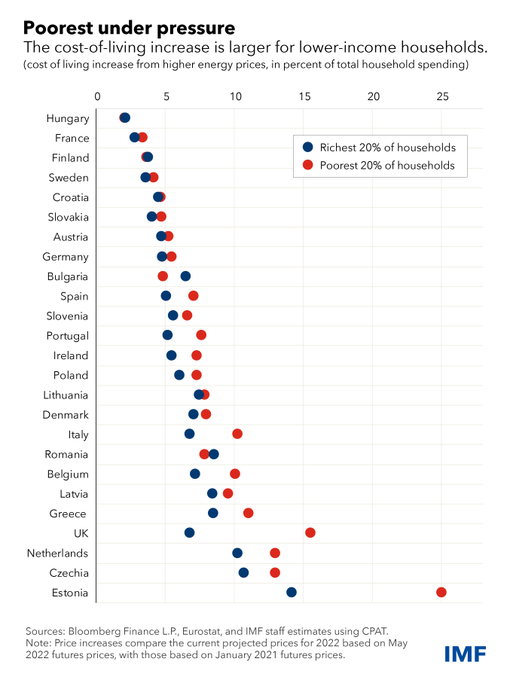
RT @IMFNews A mix of policies to mitigate climate change—carbon taxes, green subsidies, and infrastructure investment—could reduce global current account balances by a quarter by 2027. Read more here. #IMFBlog. bit.ly/3SRg8DD58
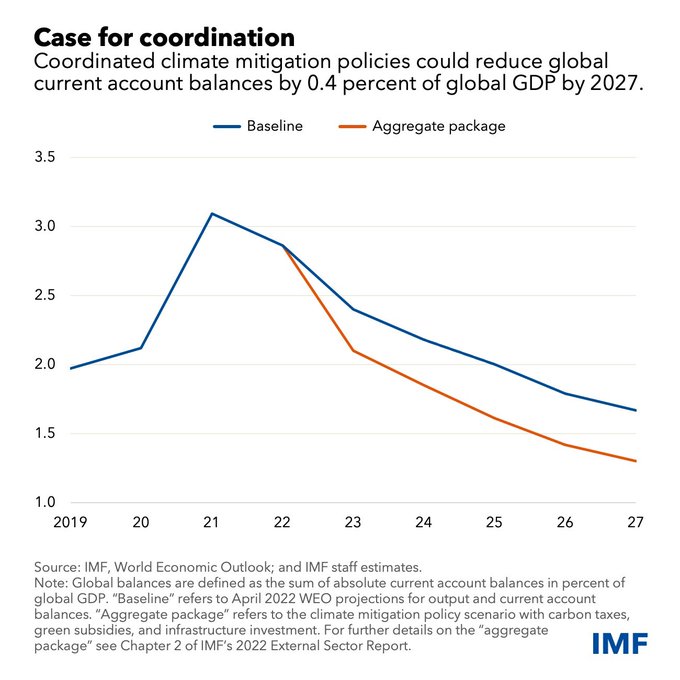
RT @IMFNews Global current account balances—the overall size of deficits and surpluses across countries—are widening for a second straight year, according to our latest External Sector Report. #ESR #IMFBlog bit.ly/3zW5Bzu
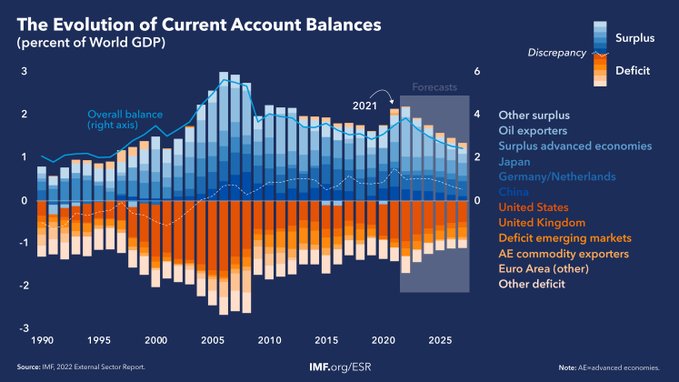
RT @IMFNews The public sector must play a major role in boosting private climate finance, and risks shared by both sides would help direct a greater part of the world’s financial assets to climate projects. bit.ly/3c22xZH #IMFBlog
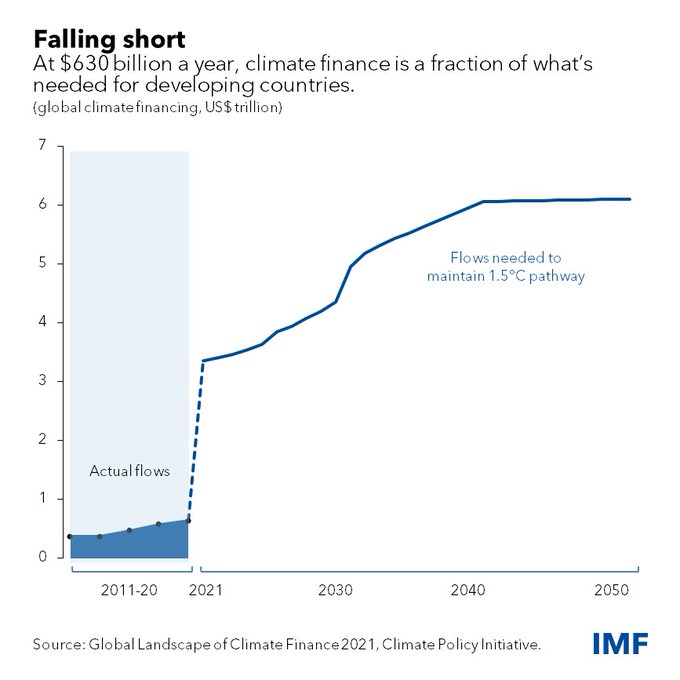
RT @IMFNews Where are the world’s fastest roads? A new IMF measure of road quality across 162 countries uses data from Google Maps. Read the #IMFBlog. bit.ly/3NUjVgw
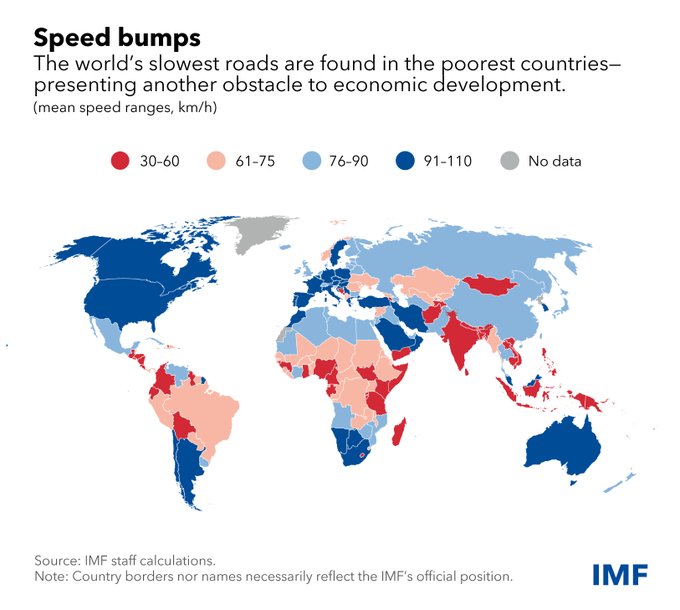
RT @IMFNews Climate policies and finance are complementary because better policies attract private investment, which in turn helps meet policy objectives in emerging and developing economies. Check out our #IMFBlog for more details: bit ..
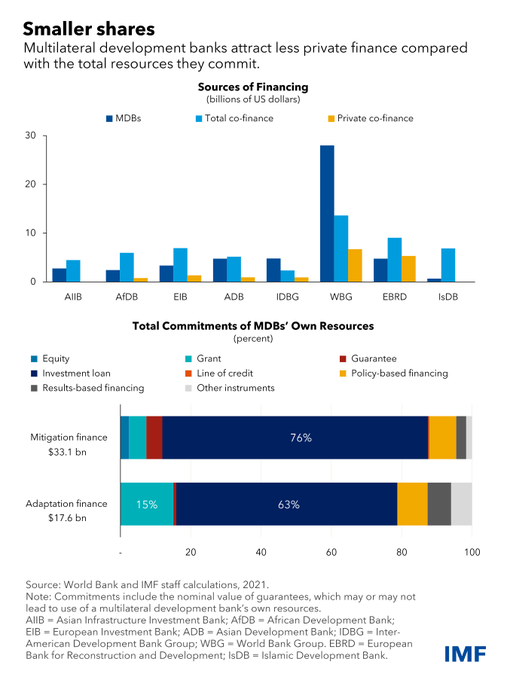
Asia's manufacturing sector is near global benchmarks, limiting further productivity gains. However, its services sector lags behind, offering significant room for growth and productivity improvement by catching up with global leaders. #IMFBlog
RT @IMFNews Given fiscal policy’s key role to help countries face debt vulnerabilities and future challenges, the call to reform Europe’s fiscal rules resonates like never before. See IMF's latest research for our plan. #IMFBlog: bit.ly ..
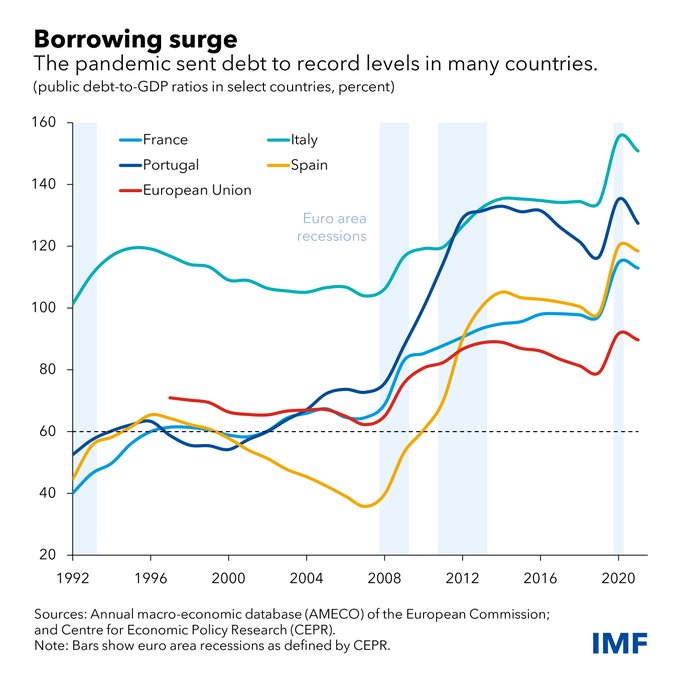
RT @IMFNews In Asia, where trade has been a big driver of economic growth, we see worrying early signs that global linkages are fraying. See our new blog for how the potential consequences may play out: bit.ly/3NfZISI #IMFblog

RT @IMFNews From Brexit and US-China trade tensions to the pandemic and war, successive shocks have kept uncertainty high. See our latest chart of the week blog for a new way to track the trends. bit.ly/3RbsLJ7 #IMFBlog

RT @IMFNews Interest rate hikes are increasingly synchronized around the world, with the frequency and magnitude of the increases accelerating in several countries. bit.ly/3SE6F2o #IMFBlog

RT @IMFNews In the United Kingdom, living costs for the poorest 20% of households are set to rise by about twice as much as those for the wealthiest because of higher energy bills. Read #IMFBlog. bit.ly/3SoC09m

RT @IMFNews Our new survey of global attitudes about fighting climate change shows that effective communication and building awareness of the best policy options matter most. Learn more here on #IMFBlog: bit.ly/3x9303d

RT @IMFNews The public sector must play a major role in boosting private climate finance, and risks shared by both sides would help direct a greater part of the world’s financial assets to climate projects. bit.ly/3c22xZH #IMFBlog

RT @IMFNews In Asia, where digital divides constrain productivity growth, narrowing those gaps and promoting technological adoption can help boost productivity growth and economic output. bit.ly/3it0ml8 #IMFblog

RT @IMFNews From Brexit and US-China trade tensions to the pandemic and war, successive shocks have kept uncertainty high. See our latest chart of the week blog for a new way to track the trends. bit.ly/3RbsLJ7 #IMFBlog

RT @IMFNews A sharp rise in interest rates could put commercial real estate prices under more pressure, especially in countries with weak prospects for economic growth. See #IMFBlog for more. bit.ly/3R5RxJg

RT @IMFNews The threat of inflation leading to faster wage growth, and even more rapid inflation, appears to be limited—so far. See our new #IMFBlog for what the latest IMF research says about the risks. bit.ly/3e5F2jw

RT @IMFNews The collapse of crypto exchange FTX is prompting calls for greater regulation of the crypto industry. Here’s what countries in sub-Saharan Africa are doing. bit.ly/3UZPQQ6 #IMFBlog
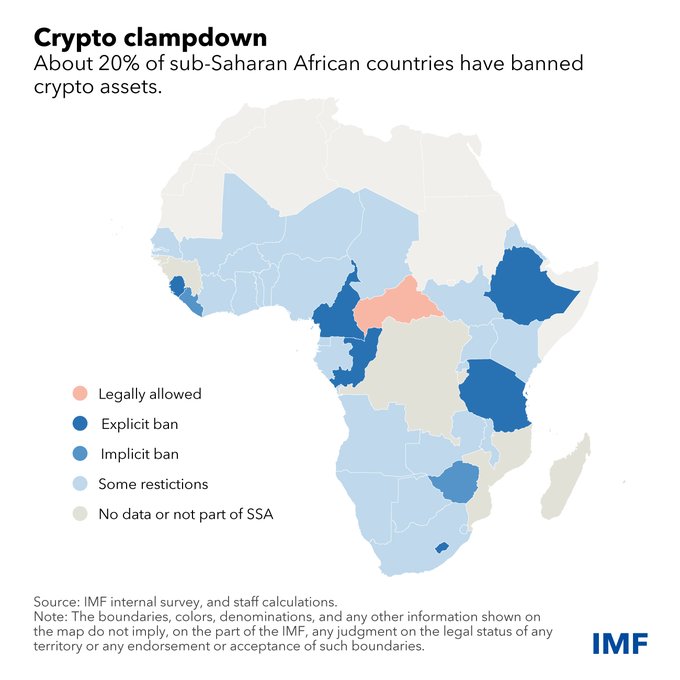
RT @IMFNews From Brexit and US-China trade tensions to the pandemic and war, successive shocks have kept uncertainty high. See our latest chart of the week blog for a new way to track the trends. bit.ly/3RbsLJ7 #IMFBlog

RT @IMFNews The collapse of crypto exchange FTX is prompting calls for greater regulation of the crypto industry. Here’s what countries in sub-Saharan Africa are doing. bit.ly/3UZPQQ6 #IMFBlog

RT @IMFNews The dollar is now at its strongest since the early 2000s. Chief Economist @pogourinchas’ latest #IMFBlog explains why that matters. bit.ly/3yto7OQ #WEO
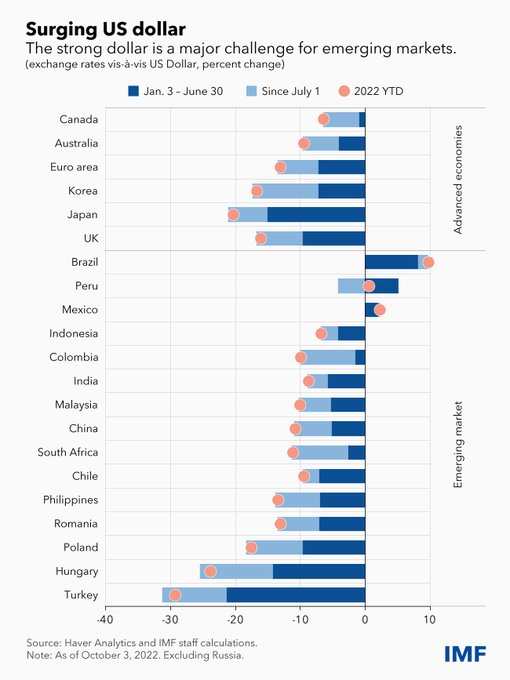
RT @IMFNews Pacific island countries have untapped tax potential, and raising more revenue could help pay for vital climate and social-development spending. See our latest blog for more. bit.ly/3yUmjOU #IMFBlog
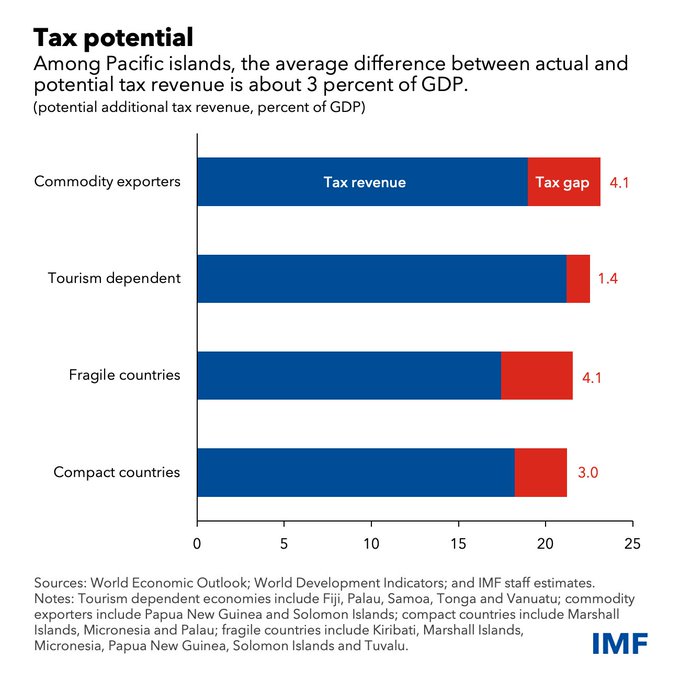
RT @IMFNews In the United Kingdom, living costs for the poorest 20% of households are set to rise by about twice as much as those for the wealthiest because of higher energy bills. Read #IMFBlog. bit.ly/3SoC09m

RT @IMFNews Our new survey of global attitudes about fighting climate change shows that effective communication and building awareness of the best policy options matter most. Learn more here on #IMFBlog: bit.ly/3x9303d

RT @IMFNews A picture is worth a thousand words. See #IMFBlog for our recent Chart of the Week posts that visualize what’s happening in the global economy. bit.ly/3wDjpgw

RT @IMFNews In the United Kingdom, living costs for the poorest 20% of households are set to rise by about twice as much as those for the wealthiest because of higher energy bills. Read #IMFBlog. bit.ly/3SoC09m

RT @IMFNews In the United Kingdom, living costs for the poorest 20% of households are set to rise by about twice as much as those for the wealthiest because of higher energy bills. Read #IMFBlog. bit.ly/3SoC09m

RT @IMFNews The longer we wait, the worse the trade-off. That’s the conclusion of our latest research on the economic costs of delaying the world’s transition to low carbon emissions. #IMFBlog bit.ly/3CyJh07

RT @IMFNews How could a Russian natural gas cutoff weigh on Europe’s economies? #IMFBlog rounds up three new staff research papers examining this question: bit.ly/3yPEpRh

RT @IMFNews Staple food prices in sub-Saharan Africa surged by an average 23.9% in 2020-22—the most since the 2008 global financial crisis. Our #IMFBlog looks at the drivers of food prices. bit.ly/3EKEpqh
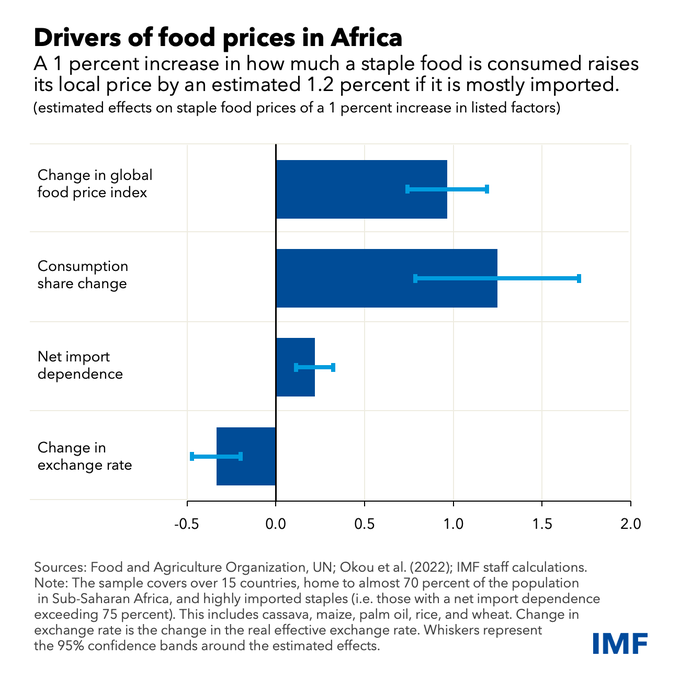
RT @IMFNews Climate policies and finance are complementary because better policies attract private investment, which in turn helps meet policy objectives in emerging and developing economies. Check out our #IMFBlog for more details: bit ..

RT @IMFNews Global debt fell by 10 percentage points in 2021 to 247% of GDP. Find out why in our new #IMFBlog ➡️bit.ly/3iWT0pS

RT @IMFNews Asia’s stock markets are moving more in sync with crypto prices, highlighting the need for regulators to better safeguard financial stability. See our latest #IMFBlog for more. bit.ly/3Adoqgz
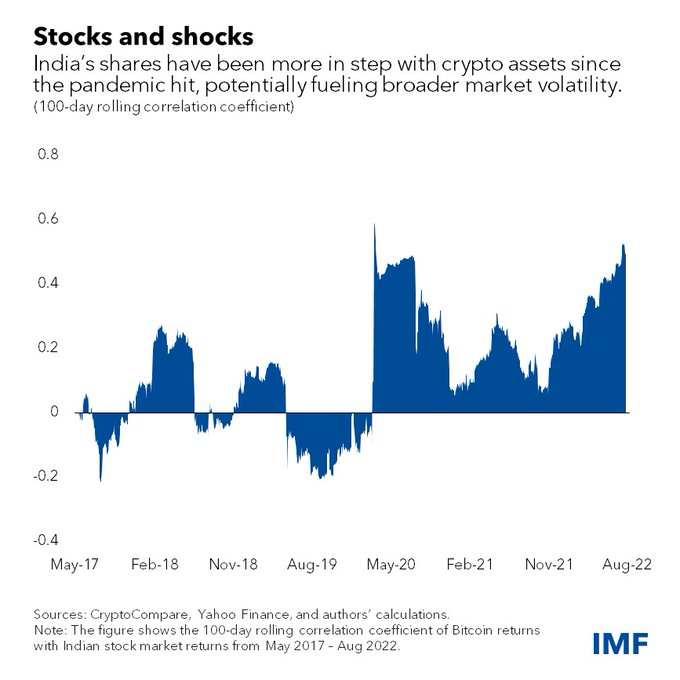
RT @IMFNews Pacific island countries have untapped tax potential, and raising more revenue could help pay for vital climate and social-development spending. See our latest blog for more. bit.ly/3yUmjOU #IMFBlog

RT @IMFNews A Russian natural gas cutoff could hit Central and Eastern Europe countries hardest, with a risk of economic contractions of up to 6%. See #IMFBlog for more. bit.ly/3yPEpRh
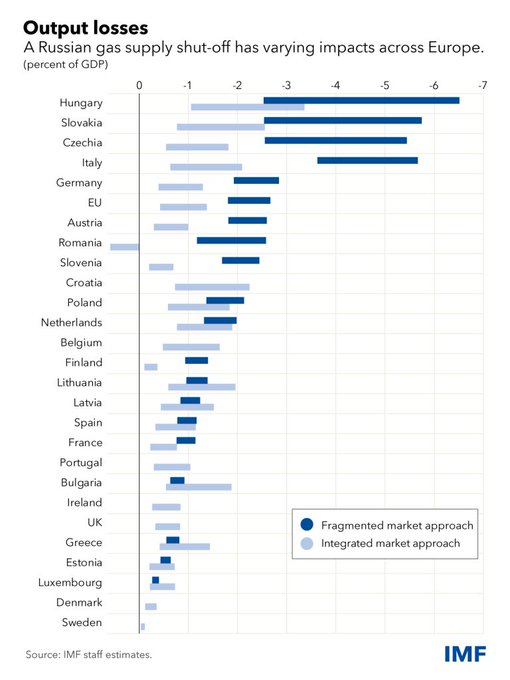
RT @IMFNews Asia’s stock markets are moving more in sync with crypto prices, highlighting the need for regulators to better safeguard financial stability. See our latest #IMFBlog for more. bit.ly/3Adoqgz

RT @IMFNews Where are the world’s fastest roads? A new IMF measure of road quality across 162 countries uses data from Google Maps. Read the #IMFBlog. bit.ly/3NUjVgw
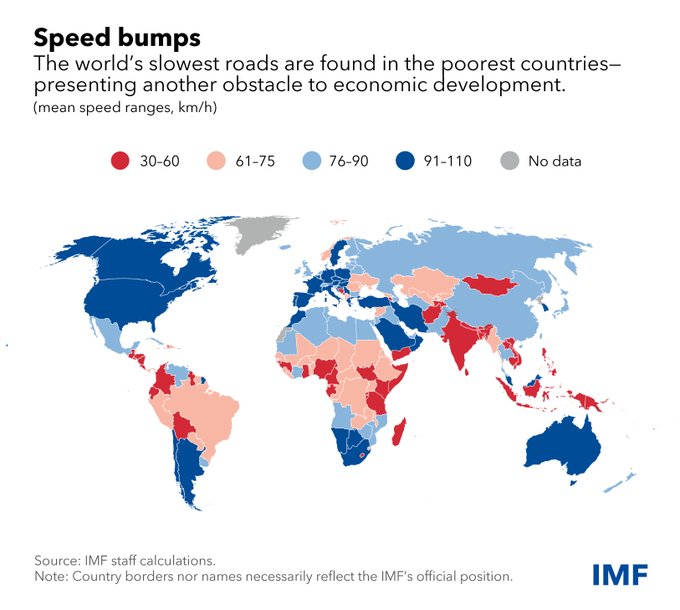
RT @IMFNews A picture is worth a thousand words. See #IMFBlog for our recent Chart of the Week posts that visualize what’s happening in the global economy. bit.ly/3wDjpgw
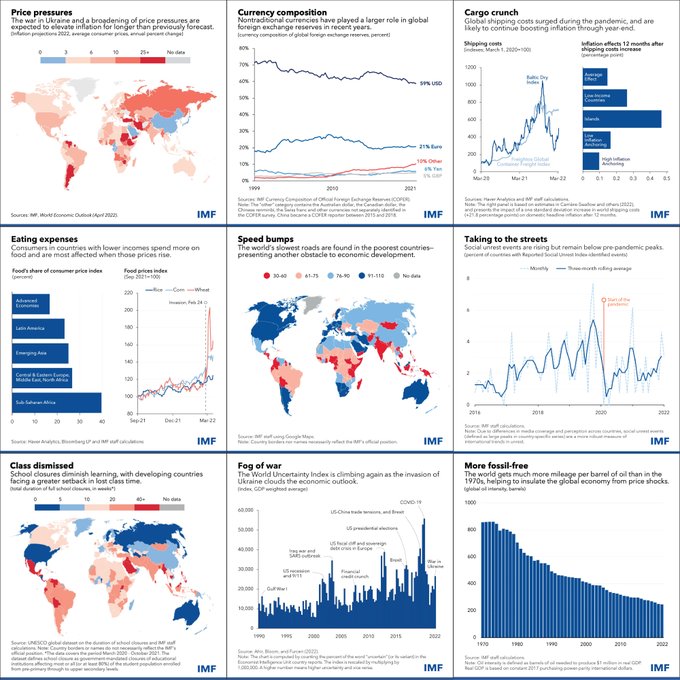
RT @IMFNews Latin America's economy expanded by nearly 4% in 2022, employment recovered strongly, and the service sector rebounded from the damage caused by the pandemic. More on #IMFBlog: bit.ly/3jv1ncG
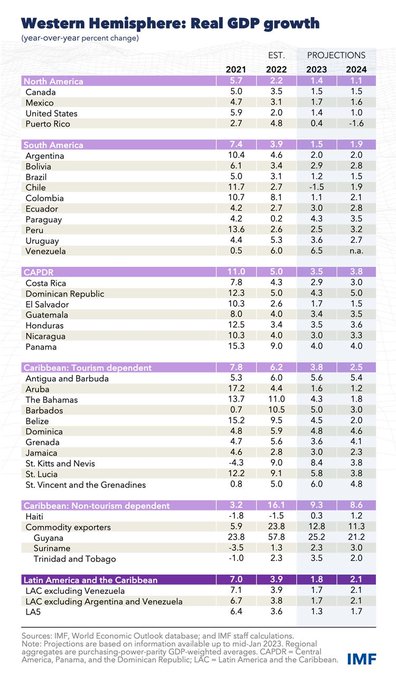
RT @IMFNews Climate policies and finance are complementary because better policies attract private investment, which in turn helps meet policy objectives in emerging and developing economies. Check out our #IMFBlog for more details: bit ..
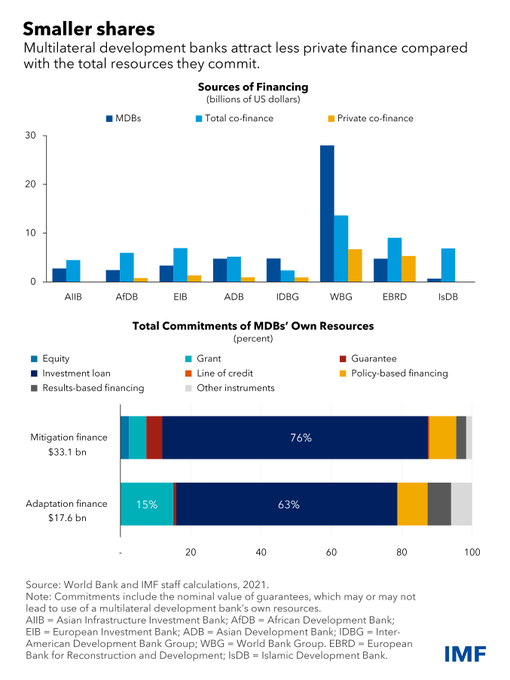
RT @IMFNews Global headline inflation is expected to decline this year but will still be above pre-pandemic levels in more than 80% of countries next year. For more on the global outlook, read @POGourinchas’ latest #WEO #IMFBlog: bit.ly/3Rd ..

RT @IMFNews A picture is worth a thousand words. See #IMFBlog for our recent Chart of the Week posts that visualize what’s happening in the global economy. bit.ly/3wDjpgw
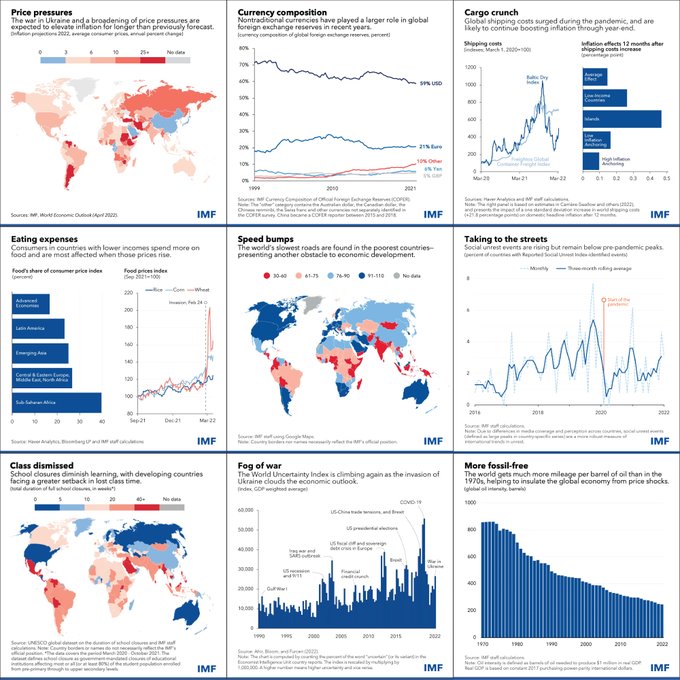
Something went wrong.
Something went wrong.
United States Trends
- 1. New York 29.6K posts
- 2. New York 29.6K posts
- 3. New York 29.6K posts
- 4. Good Wednesday 20.9K posts
- 5. Virginia 570K posts
- 6. #hazbinhotelseason2 35.1K posts
- 7. Alastor 25.7K posts
- 8. #wednesdaymotivation 1,478 posts
- 9. AND SO IT BEGINS 15K posts
- 10. Hump Day 7,563 posts
- 11. #RadioStatic 7,879 posts
- 12. Van Jones 3,242 posts
- 13. Talus Labs 20.4K posts
- 14. #questpit 9,343 posts
- 15. Enhanced 10.9K posts
- 16. But the Lord 9,223 posts
- 17. The GOP 249K posts
- 18. Proverbs 6,830 posts
- 19. Jay Jones 114K posts
- 20. RIP NYC 27.6K posts












